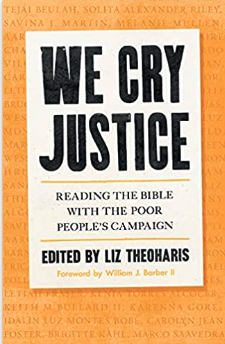by LIZ THEOHARIS

A few weeks ago, the world’s power brokers — politicians, CEOs, millionaires, billionaires — met in Davos, the mountainous Swiss resort town, for the 2023 World Economic Forum. In an annual ritual that reads ever more like Orwellian farce, the global elite gathered — their private jets lined up like gleaming sardines at a nearby private airport — to discuss the most pressing issues of our time, many of which they are chiefly responsible for creating.
The 2023 meeting was organized around the theme of “Cooperation in a Fragmented World” and the topics up for debate were all worthy choices: climate change, Covid-19, inflation, war, and the looming threat of recession. Glaringly missing, however, was any honest investigation of the deeper context behind such an epic set of crises — namely, the reality of worldwide poverty and the extreme inequality that separates the poor from the rich on this planet.

Every year, Oxfam, a global organization that fights inequality to end poverty and injustice, uses the occasion of Davos to release its latest rundown on global inequality. This year’s report, “Survival of the Richest,” offered a striking vision of global poverty from the trenches of the pandemic years. Imagine this as a start: in the last two of those years, the world’s richest 1% captured almost two-thirds of all new wealth, or twice that of the bottom 99%. Put another way, this planet’s billionaires have collectively “earned” (and yes, that’s in quotation marks for obvious reasons) $2.7 billion every one of the last 730 days. Meanwhile, in 2021 alone, at least 115 million people fell into “extreme poverty,” with billions more hanging on by a tenuous thread. By 2030, Oxfam reports, the world could be facing the “largest setback in addressing global poverty since World War II.”
The grim realities laid out in the report left me wondering: What kind of cooperation were they talking about at Davos? Did they mean a collaboration among all global communities? (Not likely!) Or did they mean the continued partnership of economic elites intent, above all else, on protecting their own wealth? And what of fragmentation? Amid increasing warfare and beneath the ongoing fracturing of democracies (including our own, thanks in part to a billionaire whose name I hardly need mention), nations, and long-held international arrangements, do they recognize the deepest fragmentation of all, that caused by so much needless suffering and inexcusable gluttony?
Poverty Amid Plenty
Here in the United States, it’s the same story: untold wealth and shocking want, even as House Republicans are threatening to slash programs like Medicare and Social Security just weeks into a new congressional session. Today, in one of the richest nations in the world, nearly half the population is either poor or a single $400 emergency away from poverty. The moral and cognitive dissonance of such a reality can be difficult to fathom, as can the numbers. At a time when the U.S. economy is valued at nearly $25 trillion and the wealth of the three richest Americans exceeds $300 billion, at least 140 million people strain to meet their basic needs and face the daily threat of economic ruin thanks to one pay cut, layoff, accident, extreme storm, or bad medical diagnosis.
Over the last 50 years, CEOs have taken ever bigger chunks out of the paychecks of their workers, so much so that the average CEO now makes 670 times more than his or her employees. It tells you how far we’ve come that, in 1965, that number was “just” 20 times more. Meanwhile, the federal minimum wage ($7.25 an hour, or about $15,000 a year) has remained remarkably low, hurting not only those who earn it, but millions of other workers whose employers use it as the floor for their own pay scales. Bear in mind that if the minimum wage had kept up with the economy’s overall productivity over the last half-century, it would now be $22 an hour, or close to $50,000 a year.
Tom Dispatch for more
